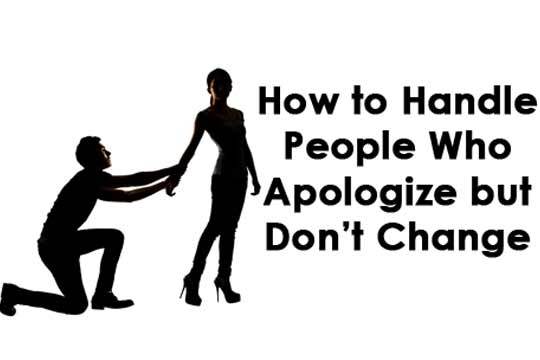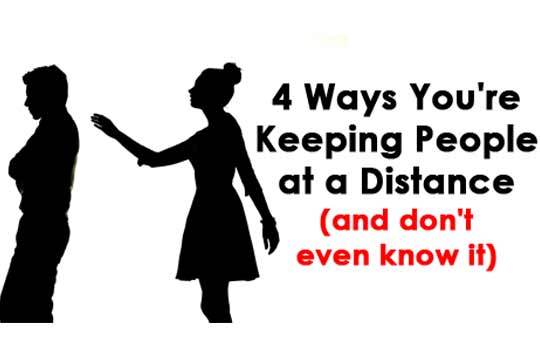Helene Lerner's Blog, page 11
July 1, 2016
5 Workplace Behaviors That Hold You Back

You’ve worked hard to get the job you want, in the organization you want. However, you feel stuck. You keep getting denied a promotion, opportunities for greater visibility, and people are not asking for your advice.
If you are practicing any of these behaviors, you need to stop because one or more might be the cause of your stagnation.
1. Involving yourself in workplace drama
You may think that you’re helping people in trouble, or rescuing a co-worker from a bad situation, but getting overly involved in personal issues in the workplace is an obstacle to being seen as a professional.
2. Participating in gossip and spreading rumors
Even if you are not spreading gossip (which is a career crusher) just listening, and not trying to stop it, makes you part of it. Co-workers will not trust you or share information.
3. Making and acting on wrong assumptions
Everyone is biased in some way, due to our personal experiences, what we’ve seen in the media, and messages we’ve received throughout our lives. Taking wrong actions because of false assumptions and bias can get in the way of building positive relationships at work and destroy your reputation. Plus, it will limit the people who want your advice or are willing to support you.
4. Being too nice
Most women have been told not to “make waves” or brag about accomplishments. Being empathetic and developing relationships at work is a plus. However, letting other people take credit for your accomplishments and ideas is a minus. You will languish in the same position, waiting to be discovered.
5. Volunteering for the wrong projects
Don’t volunteer for projects that are often relegated to women. i.e. taking meeting notes, organizing the potluck, or always working behind the scenes. Look for projects that will give you visibility to showcase your skills.

Simma Lieberman is a speaker, consultant and executive coach. She creates cultures where employees love to do their best work. www.simmalieberman.com
How To Keep Going When You Feel Like Giving Up

I consider myself an empowered woman, but there are many times when I have to do something I have never done before, that I want to go back to bed and throw the covers over me.
What is really going on at those times?
Fear has taken the front seat. In trying something new, there are no guarantees. Will I be successful, will I make some big mistakes? Here’s what helps when I am scared to move ahead.
1. Label it correctly. It’s not that I want to “give up,” it’s just that I don’t know if I will succeed. And if I do, will I be able to sustain the new me?
2. Service trumps fear. When I come from a spirit of service—how can I help someone else, and realize that my skills are useful and need to be expressed, fear takes a back seat.
3. Coached to win. There is usually someone I call upon who knows me well. They understand my strengths and fears. They are a great sounding board when I want to run and hide.
6 Things A Confident Woman Does NOT Have To Apologize For

Women say sorry all the time -- for the small things and the really big things. As women, we tend to be concerned about the emotional impact of what we say and the choices we make. Our instinct is to want to smooth things over. Far from being a problem, this is actually a great quality in almost any social situation, and the first thing we need to stop saying sorry for is for saying sorry – if that’s what feels right and natural! A confident woman may feel free to say she is sorry if she really is.
Conflict often arises when women feel the need to say sorry for things for which they don’t really WANT to apologize. Meet Susan, a confident woman, who refuses to say sorry for putting her own needs first.
Standing up for What is Right for Her
Susan is married to Jake. Jake would like to move to a suburb that is much further for her commute. What is right for Susan’s husband may not be right for her. Susan explains the reasons she isn’t interested in that location and how it would worsen her quality of life. She is able to communicate her needs and preferences and does NOT NEED TO SAY SORRY because her husband isn’t getting his way.
Asking for Help
Susan, like many wives, ends up managing the household and her career and the children. It doesn’t seem to stress her out as much as her husband Jake. She is able to plan meals, stay in touch with friends and family, pay bills on time, and so on – a lot has to do with her ability to multi-task, plan, and pay attention to detail. When she asks for help from her husband, such as taking out the trash at a certain time, she does not feel guilt for interrupting him. Women do it all without flinching and yet apologize when they are overwhelmed! Even Batman needs Robin. At work, if she reminded her peer of a deadline, she would be considered a great team player. At home, if she reminds her husband to take out the trash, she may be ignored or criticized for being a nag. Not only does Susan not need to take on everything alone; if she does, she certainly does NOT NEED TO SAY SORRY if she needs help!
Being Ambitious
Women often make career compromises for the sake of the family. Susan decides she is in a really good place at home and at work. She and Jake have one child just getting past the hectic toddler stage and about to start a steady school schedule. She is ready and excited to get back to building her career with her extra time. While she and Jake have decided to not have a second child, their mothers are up in arms. They were both looking forward to a second grandchild. Susan does NOT NEED TO SAY SORRY for not wanting a second child and putting her ambitions first!
Expressing Emotions
Whether having a difficult conversation, getting pushback from a team member, or being frustrated at work, Susan inevitably tears up in response. Susan is a kind, successful, and emotional woman. The same emotionality allows her to be sensitive to her coworkers, empathetic with her team, and intuitive in social situations. Susan does NOT NEED TO SAY SORRY because her coworkers are uncomfortable with her vulnerability.
Prioritizing Life Balance & Wellness
Susan has recently been experiencing exhaustion and poor health. To the dismay of her boss, she starts going to the gym during lunch hour (and actually taking the full lunch break after all these years!) or leaving earlier in the evening to work out. Creating life balance is extremely important to improve quality of life, allow time with family, and to take care of yourself. Her boss may not be pleased but she does NOT NEED TO SAY SORRY for prioritizing her wellness.
Starting Over
Susan ultimately decides her job isn’t fulfilling and discovers her real passion. Unfortunately, it rocks the home’s financial stability. Jake has a lot of questions, mainly about her experience as an entrepreneur and the repercussions and impact on the family. Having high emotional intelligence and being detail-oriented, she is prepared for this discussion and explains her plan. Susan understands she needs Jake to be on her side to move forward and make her new dream a reality, and she too is concerned about the inconveniences to the family. Susan must be responsible, but she certainly does NOT NEED TO SAY SORRY for having the courage to start over.

Leena Roy, CFA/CPC is a Professional Coach for Managers. A program designed to elevate and empower Mid-level Managers & Professionals to achieve their highest potential.
How To Handle People Who Apologize But Don’t Change

It’s infuriating to engage with people who promise one thing and deliver another. You can’t trust them. Even if you confront them, they look at you like you’re the crazy one. So how do you get through to them? Here are some ways that may prove effective.
1. There’s more than meets the eye. What is their agenda. Take the time to study what motivates them and what they really want from you. This information will prove invaluable in the long run.
2. Why are they still around? How can you get what you want from them? Clarify what they give you—there must be something because they are still part of your life.
3. Acceptance is the key. Can you accept them for who they are? Confronting them doesn’t work. Even if they lie or distort the truth, detach. You know what’s up, you don’t need them to validate what you know.
4. Resolve that the relationship is limited. Don’t try to get anything more than what you absolutely need. And if you find that you’ve outgrown them, by all means, move on.
Positive Words You Can Use to Feel More Confident

Words are powerful. They can build people up or tear them down. What you say can also impact your own thinking, so be sure to include these in your daily vocabulary:
“I can”: Take negative words out to make room for optimism. If you say you can, odds are you will.
“I know my strengths”: Even if you’re not totally sure of how to approach a situation, thinking positive leads to positive outcomes.
“Anything is possible”: Not letting doubt take over is important to accomplish your goals.
“This will be great”: See the result of what could happen and stay with that positive image.
- Barbara Bent
4 Ways You're Keeping People at a Distance and Don't Even Know It

It’s healthy to maintain personal space. But if you isolate yourself too much, people will say you’re drifting. Here are ways you may be doing this without even realizing it:
You’re stressed out: When we have a lot on our minds, it’s easy to get overwhelmed by our thoughts, and we shut people out.
You’re too critical: Constant criticism can hurt people’s feelings and cause them to pull away.
You’re down in the dumps: You can’t seem to find the silver lining in anything. You feel hurt, and people can tell. People may not approach you because of the vibes you’re sending out.
The attention is on you: Arrogant behavior is a turn-off. If all you do is talk about yourself, you’re probably not even aware of how people are avoiding you.
- Barbara Bent
4 Tips For Standing Up To Someone Who Puts You Down

“How did I do?” you asked Stan.
Stan shook his head and said, “Maybe others understood what you were saying. You seemed a bit unfocused.”
Your heart sank. You’d sweated buckets over your presentation. Now you felt like kicking yourself for asking Stan for feedback. You share an office with Stan and your first memory of him was when he said, “You must have enjoyed your vacation last month. Those pants look a bit tight. My wife always eats a bit too much on vacations.” At the time, you chalked it up to Stan trying to make conversation. You soon learned he loved putting others down, especially you.
We all know a snarky Stan, who whittles away at our self-esteem. If you want to undo a put-down artist’s damage, use these strategies.
Acknowledge your feelings
It hurts when another diminishes you, what you’ve done or who you are. Belittling comments drain your confidence and trigger shame, anger and other negative emotions. Allow yourself to feel what you feel, as brushed off or shoved down emotions cling and fester.
Realize your part
Those who sling vicious remarks do so to make you feel smaller so they can feel bigger. What they say isn’t truth and you needn’t take it personally. You do, however, need to stop appearing to be an easy target. If you’re the butt of repeated slams, ask yourself “what do I need to do differently?”
Take charge
Eleanor Roosevelt spoke truth when she said, “No one can make you feel inferior without your consent.” Never let a put-down artist’s mind games change how you feel about yourself or drain you of confidence. Their disrespect reveals who they are, not who you are.
Decide and act
Don’t fall into the “just brush it off” trap. If you ignore, accept or smooth things over after an insult, you let the put down artist feel he’s gotten away with it.
No one has the right to use you for target practice. Your self-esteem is on the line; you can’t ignore another’s nasty remarks and carry on as if they weren’t said.
What does it take? Realize that you deserve respect and may need to train others how they can and can’t treat you. Don’t smolder or roll over and take it, speak your mind. Forcibly cast a nasty slam dunk aside. A firm “that’s unacceptable” or “I won’t tolerate you speaking to me that way” shows you have the self-confidence and backbone needed to stand up for yourself, if and as needed.

© 2016, Lynne Curry, executive coach and author of Solutions and Beating the Workplace Bully. Follow her @lynnecurry10 or onwww.workplacecoachblog.com or on www.bullywhisperer.com™
Body Language to Watch for to Spot a Liar

Have you ever had the gut-sense someone was lying to you, but weren’t sure? Or been fooled by a smooth talker? Or accused someone of lying, and later found out you were wrong?
Would it help you to know that while accomplished liars smoothly spin reasonable sounding stories, even practiced liars signal deceit with small nonverbal clues? They do. Our eyes often catch these clues without our brain registering exactly what we’ve seen.
If you’d like to train your eye and brain to consciously register these signals, you can detect a liar, or a truth-teller. Look for these classic clues:
The top and the bottom of the face don’t match
Have you ever seen someone smile with his mouth and not his eyes? Or frown with her mouth while her eyes sparkled with glee? Because a liar can more easily control his mouth’s shape than his eyes’ expression, a liar can force a smile or frown while his eyes tell a different story. Trust the eyes.
Sudden deadpan
When you next talk with a friend, notice her facial animation. Most people show a lot of facial animation until they want to guard what their thinking. A liar will suddenly adopt a “dead-pan” expression in an attempt to mask his feelings.
An abrupt shift
When two people talk, they unconsciously adopt similar body positions and styles of speech. You may have noticed you begin drawling when speaking with someone with a Southern accent or you instinctively smile or yawn when someone smiles at you or yawns in your presence. This unconscious, instinctive adopting of another’s nonverbal position creates a feeling of rapport. To break this feeling of rapport, a person planning to lie instinctively moves into a dissimilar body position. If someone’s body position abruptly shifts to a position different than yours just before answering a question, suspect a lie.
Up and to the left
Our eyes and other facial features move when we think of answers to a question. In general, a right-handed individual’s eyes flicker up and to the right when answering based on a remembered incident. When a right-handed person’s eyes move up and to his left, he’s visually “constructing” a picture of something new--potentially a lie.
Micro-expressions
When you ask a person a question and their face initially shows a reaction and then shifts into a different expression, the first, split-second reaction often tells the truth. When Arnold Schwarzenegger was asked about his sexual indiscretions at a press conference, his nostrils flared and then his mouth momentarily snarled. Within seconds, his face smoothed and he said he appreciated the question. If your eye hadn’t caught the micro-expression, you might have been fooled by Schwarzenegger’s practiced delivery.
Finally, look for two or more clues. Any one clue, such as a deadpan face, may be simply a characteristic of that person. The second clue confirms what the first clue hints.
While these clues may initially seem like “hocus pocus,” once you get the hang of interpreting nonverbal signals, a whole new world opens up. You can actually “watch” someone lie, gaining visual confirmation of your suspicions.

© 2016, Lynne Curry, executive coach and author of Solutions and Beating the Workplace Bully. Follow her @lynnecurry10 or on www.workplacecoachblog.com or on www.bullywhisperer.com™
What We Can Learn from Animal Spirit Guides?

For centuries, humans have used images in nature to give life meaning. Some societies studied characteristics of all species of animals and drew powerful comparisons to their own lives. Different types of animals act as different “spirit guides.” Below is a simple summary...Which ones do you relate to?
Birds: They’re symbols of freedom and harmony. They also represent the desire to aim for lofty goals.
Insects: These animals symbolize determination and patience.
Water animals: They represent the connection between humans and their deepest anxieties and desires.
Land animals: Their characteristics are intuition and diligence. They also represent emotional grounding.
Reptiles: These creatures symbolize the ability to adapt to change.
Within each animal type, specific species possess certain characteristics that we can all learn from. For example, the blue jay is a bold and loud songbird, representing the idea that we should confront issues and lay them out in the open instead of ignoring them. Click here or check out Ted Andrews’ book, “Animal Speak” to learn more about animal spirit guides.
- Barbara Bent
Best Friend Therapy

Sometimes having coffee with your best friend is all the therapy you need.
Helene Lerner's Blog
- Helene Lerner's profile
- 9 followers



